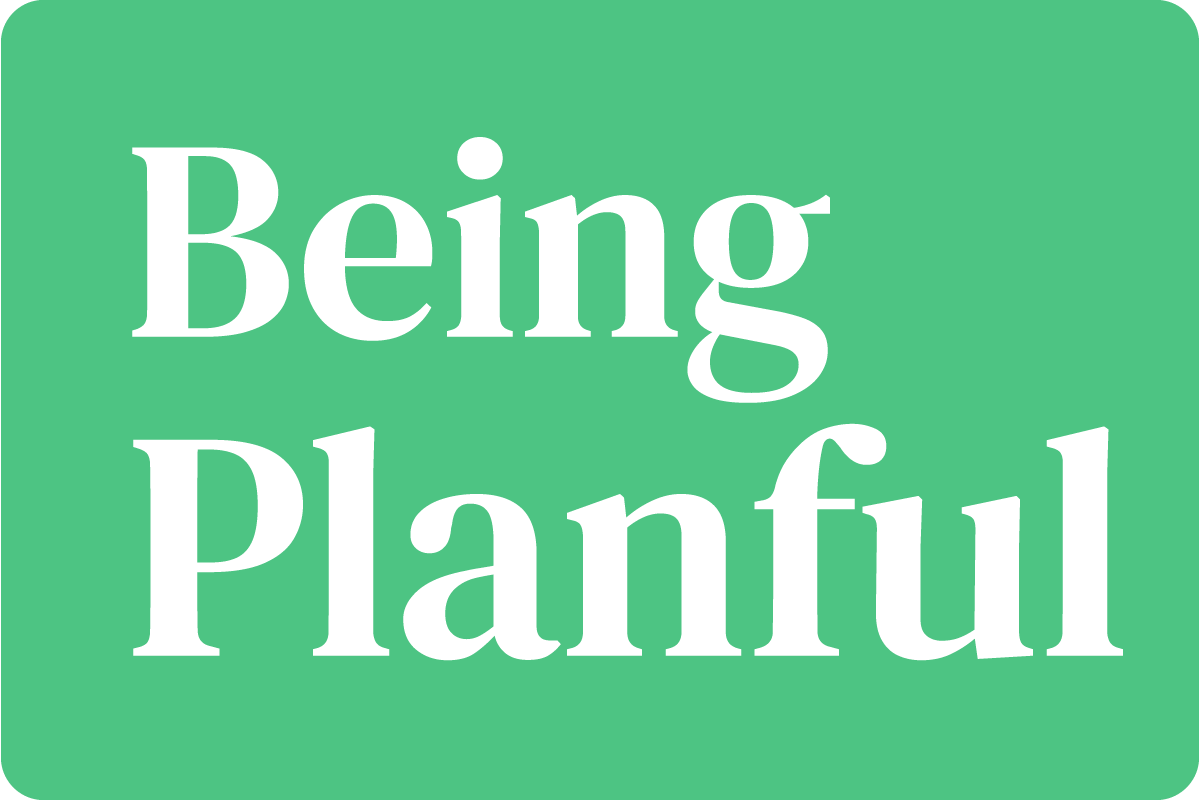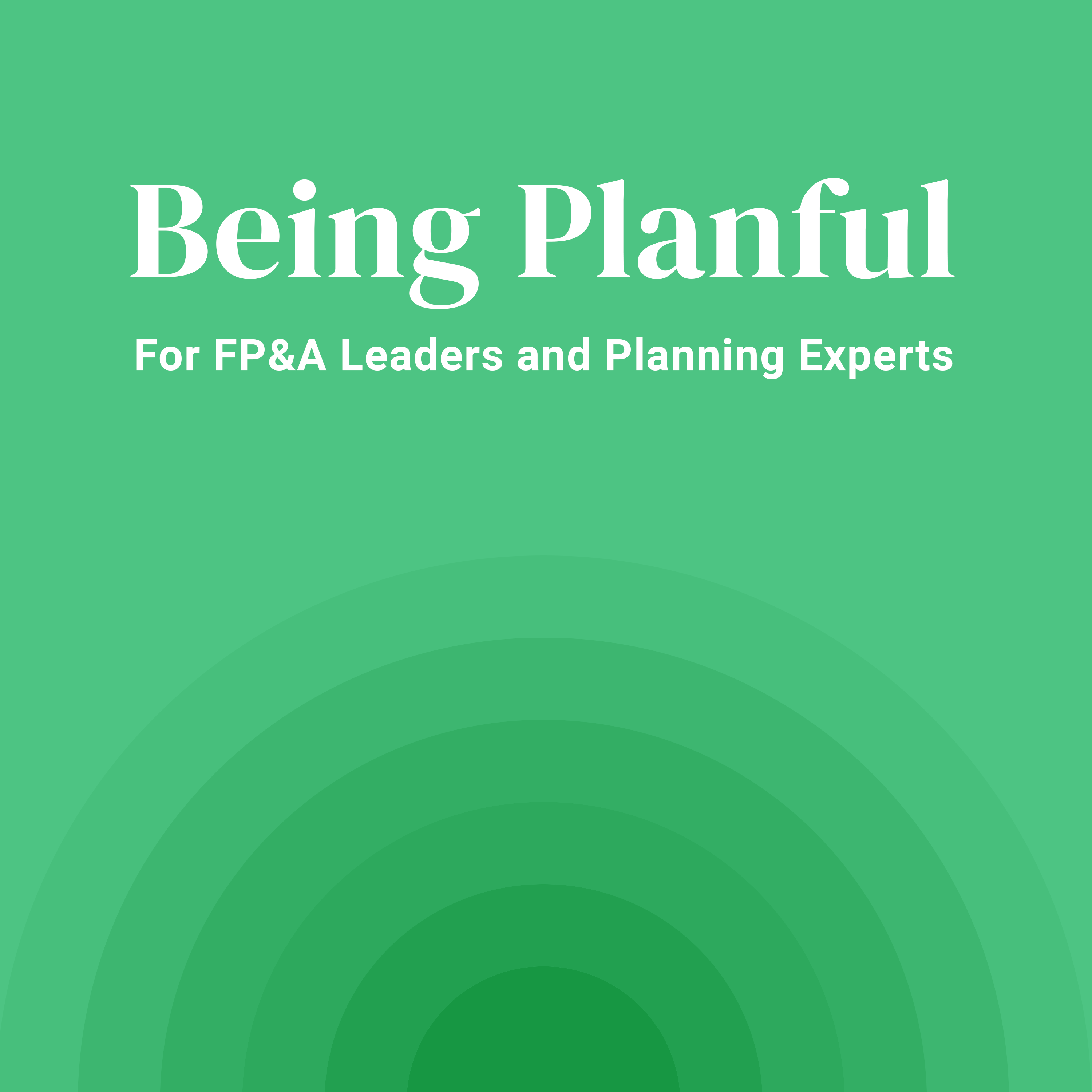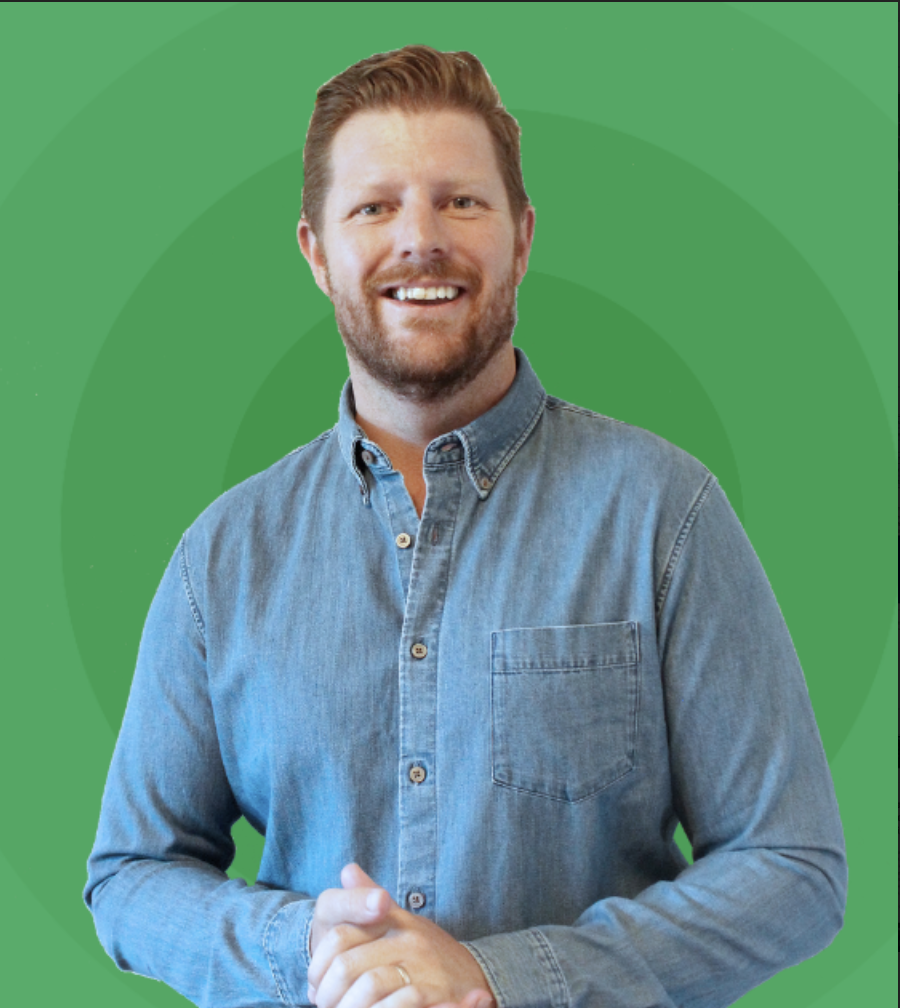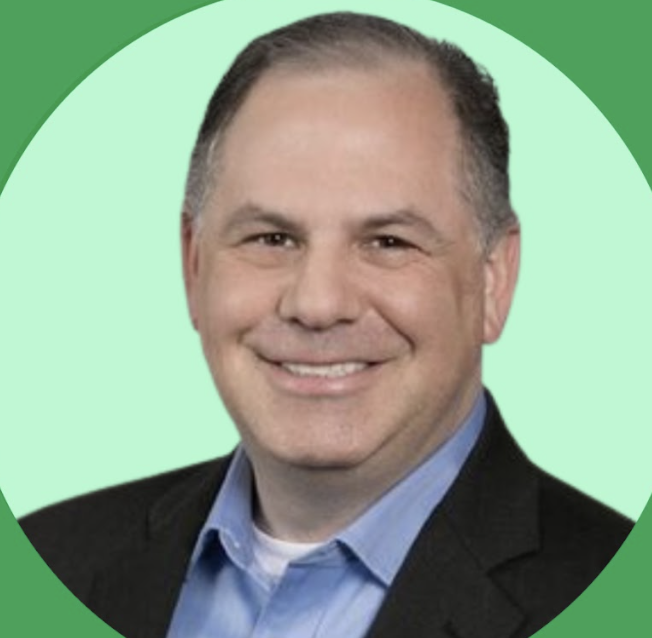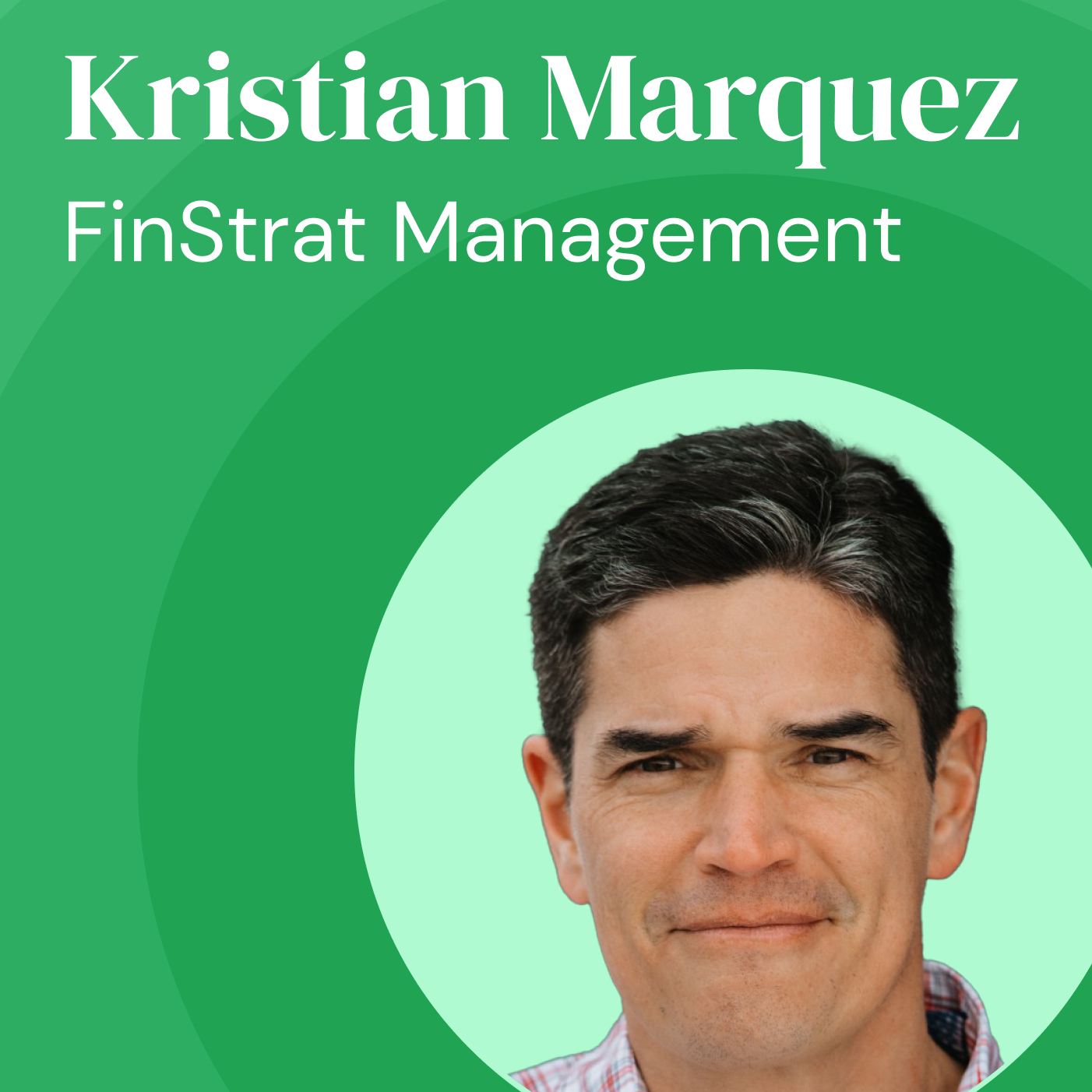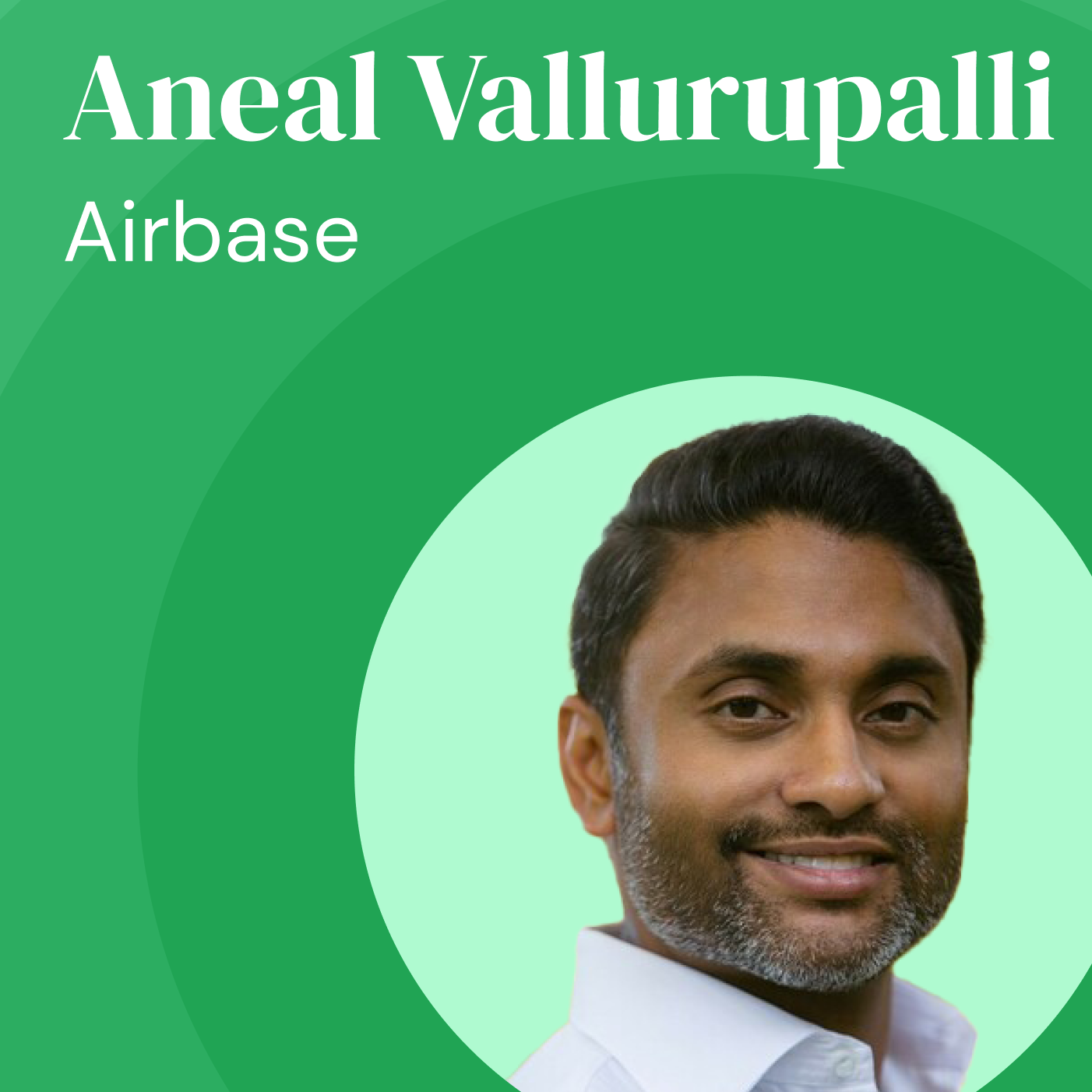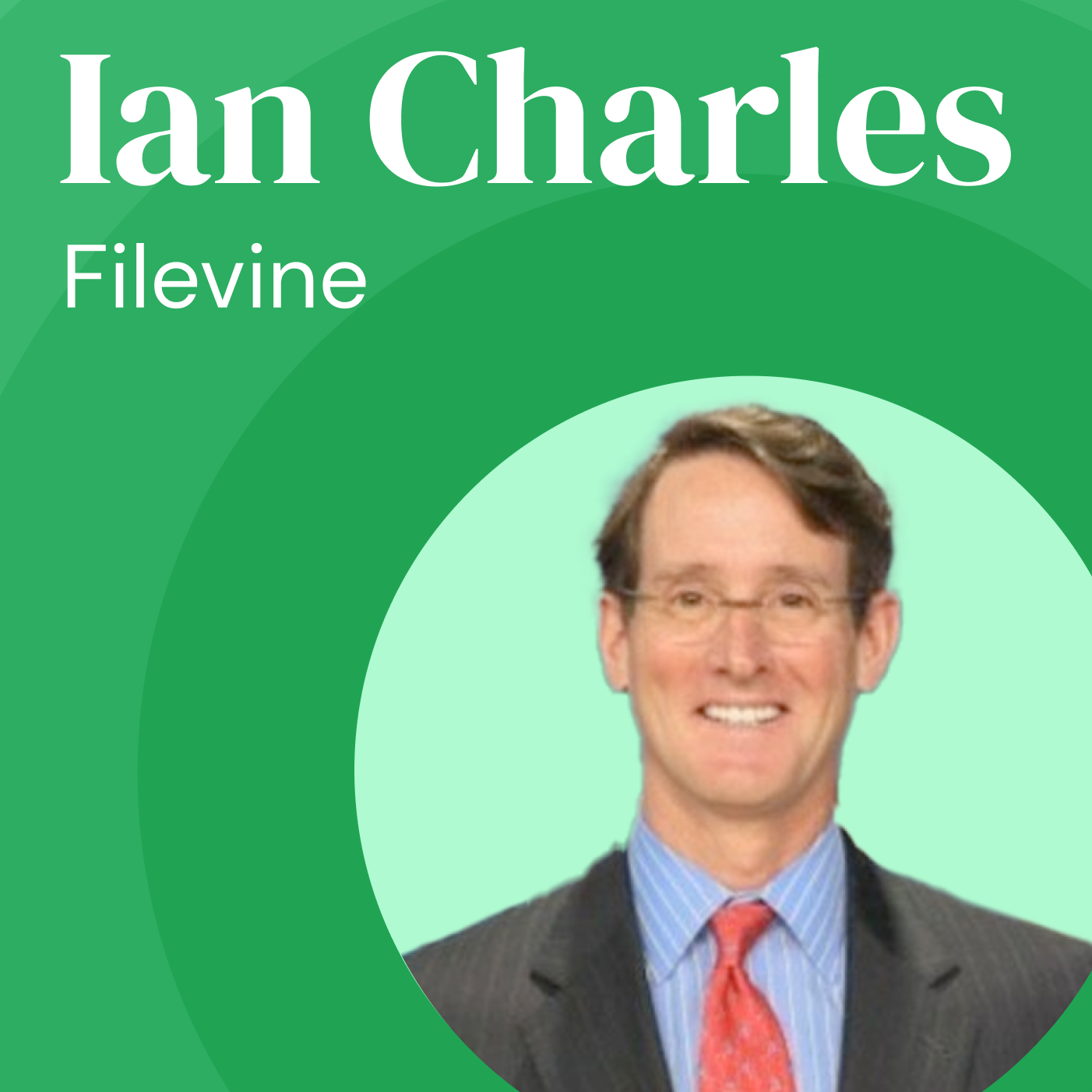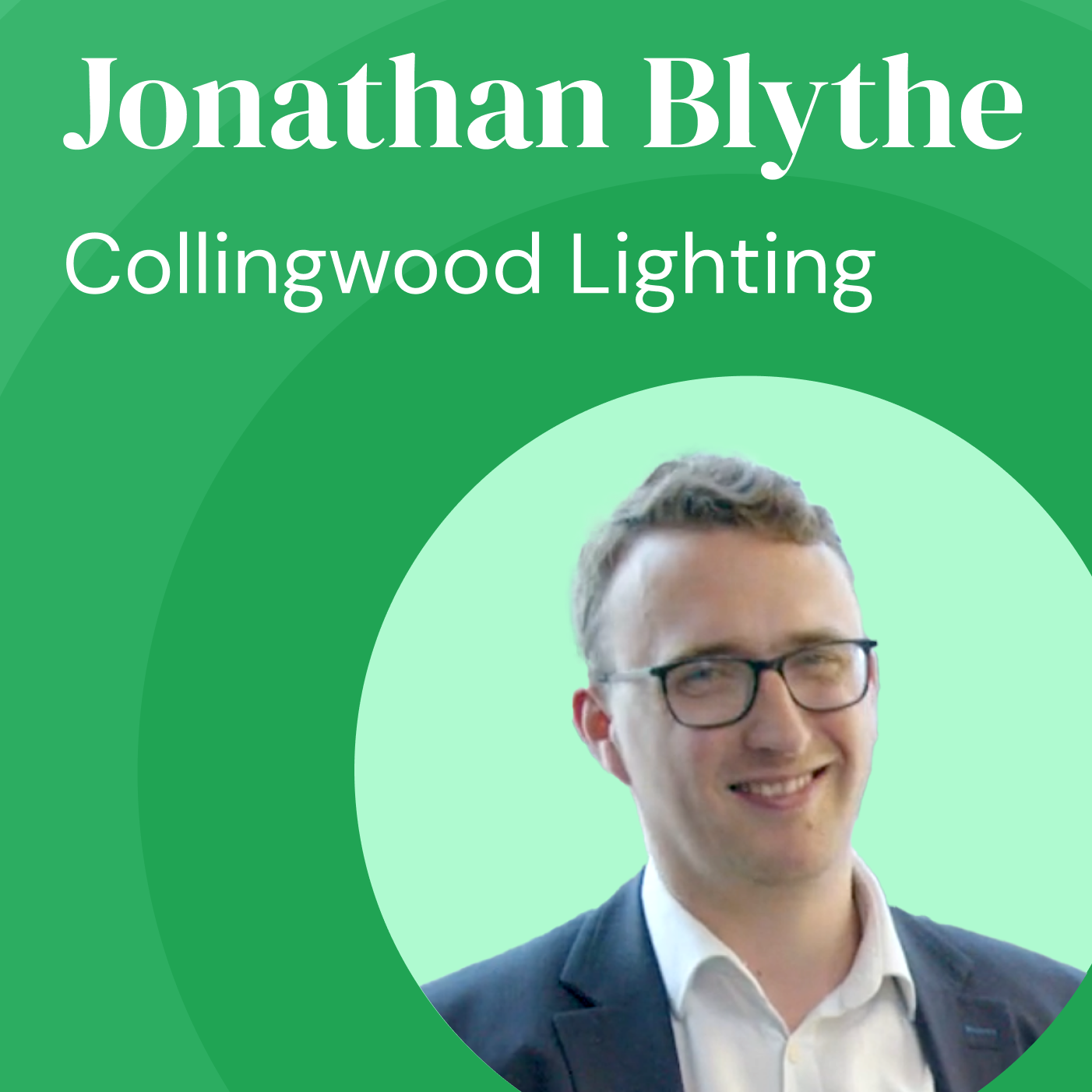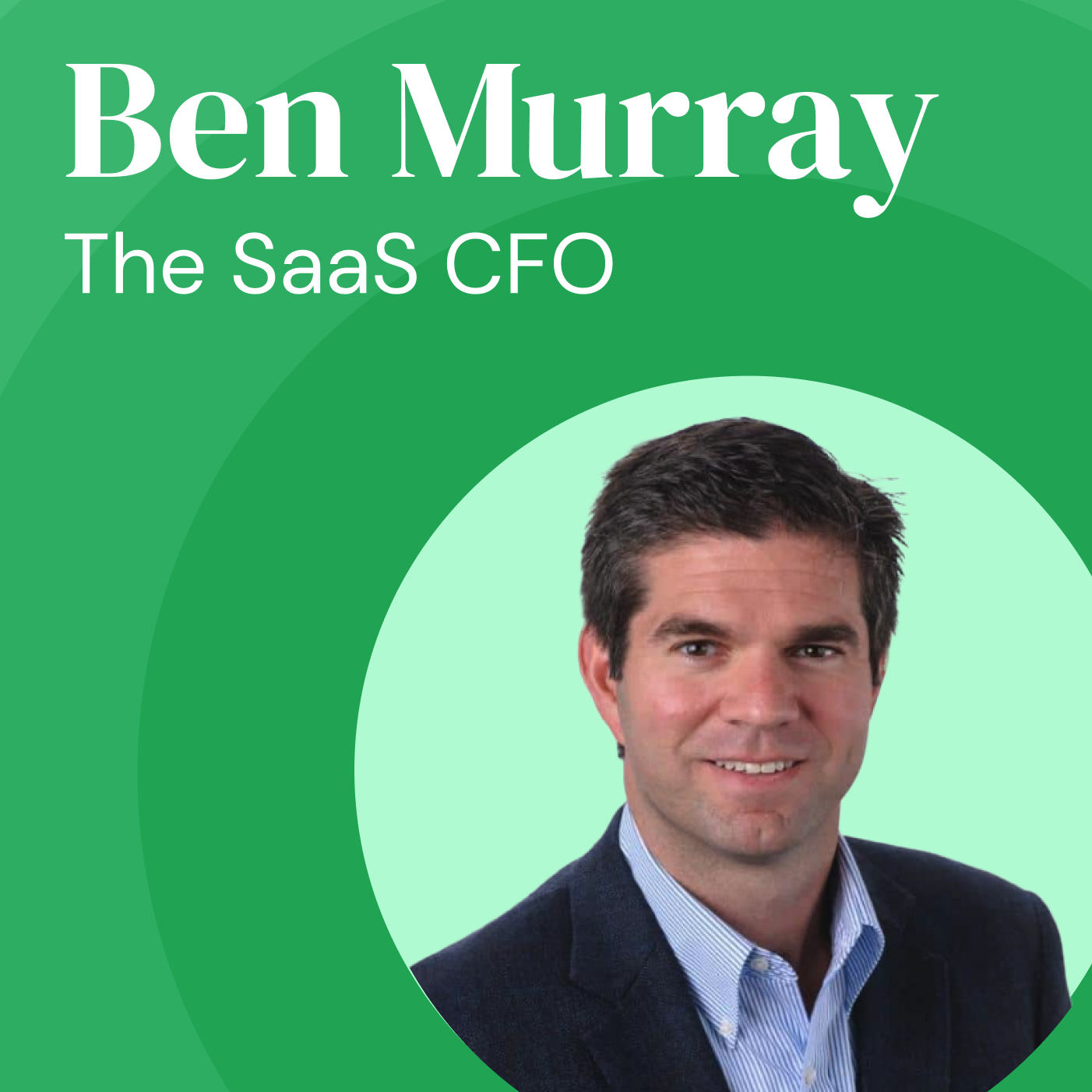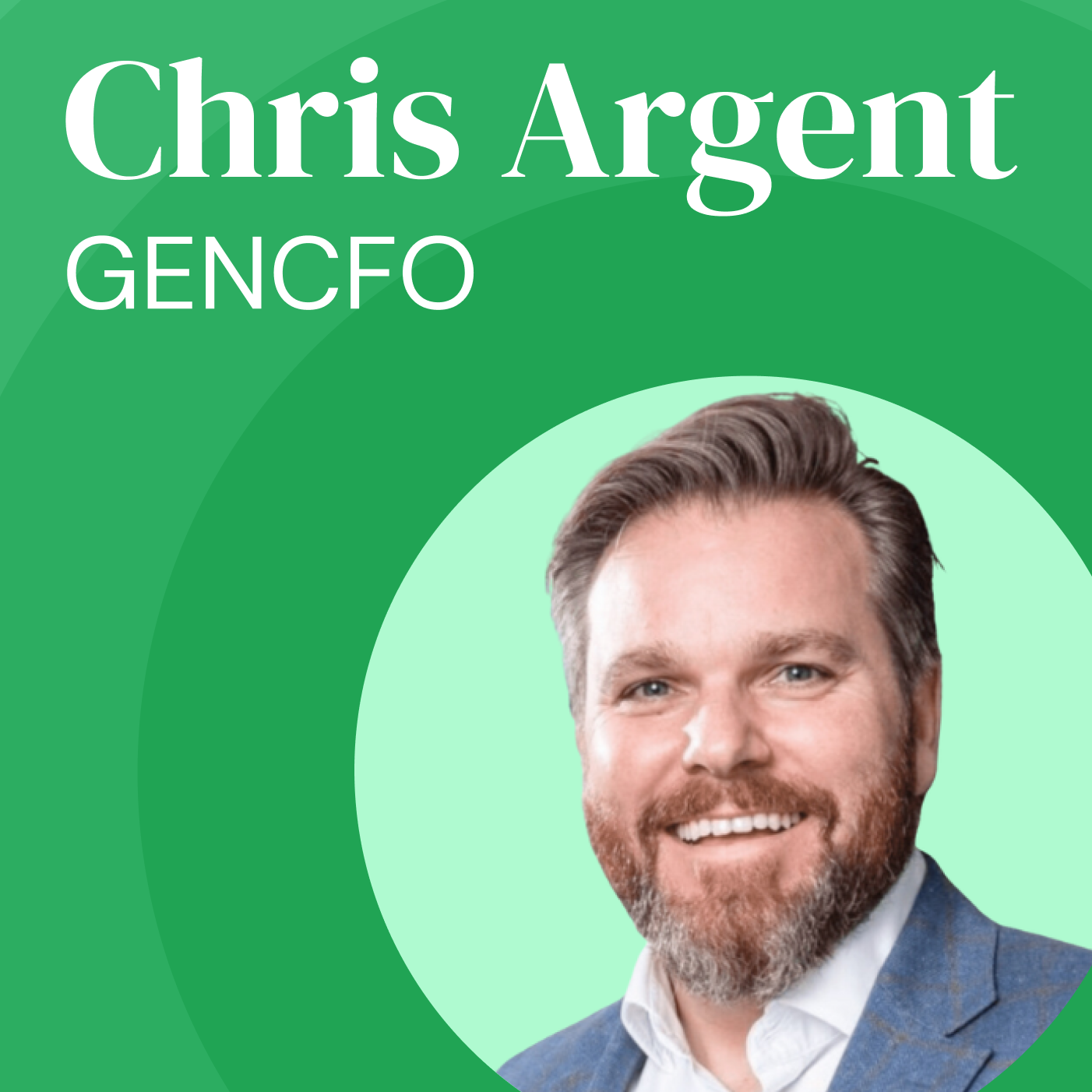How to Keep Current | FP&A Fridays
- 0.5
- 1
- 1.25
- 1.5
- 1.75
- 2
Hi. I'm your host, Rowan Tonkin and welcome to Being Planful, the show for FP& A leaders and planning experts. Hi, everyone. Welcome to FP& A Fridays. Today, I am just joined by the irresistible Glenn Snyder. Glenn and myself will be hosting today's FP& A Fridays. We got a really interesting topic, which is how do you stay up to date with all the new tips, techniques, tricks? How do you stay current and stay learning? And I think this is a really great time for this type of topic. People will hopefully have some downtime over Thanksgiving and over the holiday period, maybe not all those FP& A practitioners who are in the midst of annual planning. And that then brings me to the next topic, Glenn, how do you do this when you are working 70, 80, even a 100 hour weeks? How do you stay on top of new thinking?
Glenn Snyder: Well, there's a couple different ways, new ideas. First of all, you have to recognize, new ideas can't come from you. Let me rephrase that. They can but you want new ideas to be coming from outside influences and other sources. That means either you have to spend time going out and doing things like networking, attending conferences. That stuff takes a lot of time and when you're working 70 hours a week, kind of hard to do that. The other way to do it is to use the people that you work with every day. Bounce ideas off of them, recognize that they have different backgrounds, different perspectives, invite them into meetings, challenge them to come up with new ideas. And for anyone who's ever worked for me, they know I love being next to a whiteboard because anytime that we are talking about doing something, to me, you whiteboard it out. You put every idea, no matter how ridiculous it sounds up on the whiteboard and you talk through it and you make sure that before you start the project, you're going down the right path. That to me has always been a great way. When you go over, if you're doing, I'll use you as an example, if I'm doing a project for the marketing group, I'm doing something on how can we be more cost effective in our marketing spend? Well, if finance is doing that by themselves, you're going to completely miss the boat. You need to have some marketing people in there but maybe you need to have some salespeople in there too to say," Well, here's what marketing has been more effective that we've seen." And now you start pulling people from different perspectives and asking those questions to make sure you're getting those ideas that you're not able to come up with on your own.
Rowan Tonkin: I love it. I think building it as part of your project based work or if you've been given an initiative, which in that case is let's go and investigate opportunities to improve marketing spend. And if you make it a part of the process to do some upfront education, gather input from other functions, other organizational leads, then it might lead you to different lines of questioning or experimentation or different ways of doing the analysis than you may have had just walking in. The old adage is you learn something new every day, every day is a school day and that can only be true if you're with other people or trying to surface information. If you just spend your day at home and disconnect from everything and sit down, then you're not going to really probably learn anything new. You have to engage that level of curiosity. Something that I've found successful for myself is just making it a bit more habitual. How do you make learning just part of your routine? For me, that's every morning I wake up, my kids wake me up, I get them breakfast ready or my wife gets some breakfast ready, sit down and have a coffee and I generally try and do some reading. I go online but I'm doing that with a, what little rabbit hole can I go down for 15 minutes? And I try and find whether that's newsletters that I enjoy reading, go and read a newsletter. And then if I find myself more curious about something, then I'll go down that rabbit hole, find my time for a podcast. Everyone who's listening already is listening to podcasts so give yourself a little pat on the back, you're already doing this just by sitting here and listening to Glenn and myself talk about this scenario. And that's really important is just how do you go and find opportunities to listen to new thinking and even something like following certain folks on LinkedIn. There's so much media out there today, if you want to curate your own following list, then you'll find new ideas really quickly because people love to talk about the things that they found.
Glenn Snyder: Yeah. I looked at it, I take a little different approach. For me, I always have in my office, I have on my whiteboard, of course I have my, here's a list of all my different projects. And the first thing I do every single morning while the computer's booting up is I go and I look at those projects and I think about, what do I need to be thinking about? Where am I at? What am I going to be doing? And who do I need to start talking to to start making sure I get the right perspective. That's one thing to be thinking on engaging with other people. The other thing that I do is I try and make it a point, especially back in the day before COVID, when we would all be physically in an office, I tried to go out to lunch every day and pick a different person from a different area. You get to know them, you bounce ideas off them but then the more you build up that relationship, the more you start to trust each other and can really share ideas. The other thing is that sometimes you're not always thinking go out to lunch with someone internal but also external, companies you used to work at, maybe somebody on LinkedIn who you want to connect with and you reach out to them and say," Hey, I've been very impressed. I saw this article that you wrote or I was at this event and you were speaking, I'd love to take you out to coffee or lunch sometime." And you propose things like that. The more you can engage with people to me one on one and really share ideas, all of a sudden, it just really opens up possibilities. But the biggest thing that you have to do is you have to open your mind to those new ideas. If you go in and you're a leader who says," Hey, I've been doing this for 20 plus years. I know exactly what I'm doing. I could do this in my sleep," you're not looking for those new ideas. And the first thing you need to say is," I could always improve. I can always get better and I need to start looking and finding ways on how do I make things better? How do I take that next step? Because I don't have the answers to everything."
Rowan Tonkin: Yeah. There's a learning expert out there, his name is Jim Qwik. I don't know if you ever heard of him, Q- W- I- K. And he has this really excellent system for meetings and conversations, which is to at the end of each meeting look at your notes and then say," What did I just learn? How can I use this?" And then the final question is," When will I use this?" And at the end of that meeting, if you say," When will I use this?" go and schedule that time in whatever your task management system is. If that's a task tracker, then write something in it. If that's your calendar, go and book the time. And then I've internally, I've used this methodology with my team and then I've added a fourth one, which is who else needs to know?
Glenn Snyder: That's good.
Rowan Tonkin: Because generally, one of the big challenges with learning and sharing insights is you forget to tell other people about the stuff that you're working on. And so the who else needs to know is just that final trigger to say," Oh, if I learned something in a meeting, I should probably tell some other people because maybe they weren't in the same meeting," especially now that we're in this environment of all being remote, we're all in these little kind of parts of the meeting universe and all in different Zoom rooms. That is a really important one for me, to make sure that I'm not only learning myself but sharing what I'm learning and why with other folks. And that really helps you not forget.
Glenn Snyder: Yeah. I'm going to take that one step further. What I like to do is if I'm in a meeting and I'm learning something new or I'm hearing from somebody for the first time, usually after that meeting, I ping that person and say," Hey, you know what? Can we set up a regular one-on-one? I'd love to get to know you more. I want to get to understand where you're coming from." And it's those one-on-one meetings and people always think, okay, I got a lot of meetings on my calendar as a finance business partner, I have my business partner to have to meet with but you need to have relationships with people all over the company, whether or not you directly support them. And to just go and start engaging with people because their business may connect into your business partner's business in a way that you might not be aware. And now you become that much more insightful. Once again, it's where do the new ideas come from? And they oftentimes come from people who you would not normally expect to engage with. When you start engaging with them, now all of a sudden it's just, wow, never thought of it from that angle before. And that's what we honestly try and tell our business partner. I can't tell you how many times I've had a conversation with a marketing leader or a sales leader or operations leader and try and explain to them why finance should be in the meetings with them. It's because we're going to come from a different perspective to make sure you're looking at whatever you're trying to solve from every possible angle. And if we're making that argument to get ourselves in the meeting, why aren't we inviting others into our meetings as well?
Rowan Tonkin: Yeah, I like that. It's collaboration is a two way street. If you want to be participating on one side, then also make sure that you're reciprocating. Let's talk about where do you get new ideas? Or kind of different channels. For me, one of my habitual things is podcasts. Should be no surprise to the host of a podcast that I like listening to podcasts but I really enjoy them just because it allows me to completely I put my headphones on and I tune out from my surrounds and I'll either go on a walk or just sit down and the audio for me is something that really triggers my brain and allows my mind to wander with, oh, I wonder about this. I wonder about that. I wonder, oh, that's an interesting train of thought. How does that impact me? Without really having to do too much? It allows my mind to wander. And I think that's also something really important for listeners is you've also got to just take the time to be present in whatever way you're learning. Because we have all done it, we've sat on webinars and we've been completely distracted and we're watching or doing something else and you just don't take anything in. For me, newsletters, like I love signing up to new newsletters because then I get information just via email. And if I've got the time I'll go down or I can remind myself later and physical books. I still love to go on Amazon and buy a physical book and read it and just digest it. And I don't get through every single book that I buy but they're there and I might skim a few chapters and learn something new. And then if I'm really enjoying the topic, I dive into it. They'd be my personal preferences. What about yours, Glenn? Obviously people and lunches.
Glenn Snyder: Yes. I'm a big physical book person. You can see the bookcase behind me. There's another one off camera. I very much like physical books. I try and read a chapter every night before I go to sleep. To me, and when you're reading those books, it's the ones that really hit home for me are around leadership. How do you go to a whole new level? And it's when you're reading that and you could start seeing yourself and saying," What have I done that's similar? What have I done that's different that I should be changing?" And really be very introspective about that. But the other thing that I really like is that personal interaction. I love going over and asking people about different things. And what's really funny is I'm not talking about, oh, I want to go up to other FP& A people or go talk to the CFO. Yes, of course I'm going to be engaging in people like that. But I like to go out to people who have access to information that I wouldn't normally have. I've made some contacts over at Gartner, for example. When I'm going over it, I'm thinking, hey, wait a second. We need to upgrade a system or I need to find a new consultant or I need to come up with a better process for this. I'll reach out to the people I know at Gartner and say," Have you guys done any research on this? Anything you could share?" And now all of a sudden I'm getting market surveys and other things that they're doing and people at Gartner have been just fantastic to work with and they're sharing ideas. But then you also go onto other forums where you could go to places. Planful, I know has this but many software companies have a forum for users to just go and throw an idea out there. I'm trying to solve X, Y, and Z. Has anyone else run into this issue? And you see where that stuff comes back from. Gartner actually acquired a company that was called the Executive, something Executive, something Executive Board, CEB. Anyway I can't remember. Anyway, they had a forum like that. And I used to, when I was at Charles Schwab, I used to go in all the time. And you say," I'm trying to find a way that I could create a more efficient forecast for this," or," How do I go over and connect marketing awareness to revenue? Is there any?" Those types of things where it's like, I don't really know what the right answer is and you throw it out there and just people in the community come back with various ideas. Some are good, some are not and the ones that are good may not solve your issue but it's a place to start that starts getting you thinking in a different way.
Rowan Tonkin: Yeah. And that's the I think that openness to thinking, that curiosity. I think, most listeners to a podcast like this have probably heard of Steve Jobs's famous, stay curious speech, graduation speech. I think that's so true. And if you are not naturally an intellectually curious person, you have to force yourself to be curious and create little systems for yourself in order to do that. If you have a recognition that, hey, just naturally curiosity isn't my thing. Then try and figure out, how can you do that? Use a system like the Jim Kwik system or user system like Glenn said, force yourself to have lunch with people more frequently and let that come organically and they might recommend things for you but be very intentional about it. Because if you're not intentional about it, it will never happen regardless of what you're trying to do, unless you really have high levels of curiosity. I've done some of those kind of demographics and I have natural curiosity so I don't really need the systems personally. But for those that aren't just naturally curious people, always ask yourself those questions. What is this information about? How is it relevant to something else? What could I do with this? Because if you don't ask yourself those questions and you just consume the information, then nothing will come of them and you won't experiment with new ideas and new ways of working or new ways of doing things.
Glenn Snyder: I am actually, I 100% agree with you but I think and it's kind of funny because you're my marketing person. You are naturally more on the creative thinking side. As a finance person, most of us are not. But to me, creativity is one of those aspects that is just really overlooked in finance because the only way you solve a problem that no one else has been able to solve is by being creative. And this is going to sound a little funny but when I was a kid growing up, I used to rearrange my room all the time. Now I'm going to try my bed over here. I'm going to move my desk that way or whatever. And I was constantly moving things around. Great exercise anyway. But I actually realized that I needed to be more creative and the thoughts actually entered my head. What if I put the chair on the ceiling? How would that work? Well, clearly that would not be a good place to chair. Okay fine. But I went over and I told myself," Nothing is out of bounds." Think about all the possibilities. And when you start eliminating things, then you say," Okay, fine that doesn't work, that doesn't work." But then all of a sudden you come up to, hey, I can't eliminate these different options. Let me go down this a little further. And we as finance people, we could always take a look at a report, a budget process, forecast, a model, whatever and say," How can I do this better? What would make it better?" And just say," Forget about the constraints that you put on yourself. Don't think about the system you work in. Don't think about the people you have or the timeframes or anything." And just say," How can this be better?" And start throwing things against the wall and see what sticks. And then you invite other people into that conversation. You debate it. To me, that's where you go over and you create this curiosity about how do I do something in a better way? And you bring that creativity and now all of a sudden you're challenging yourself to go to a whole new level. And so as an introvert, I think that is an easy way to kind of get that ball rolling.
Rowan Tonkin: Yeah. And I think the term they have for that is that first principles thinking. Which is if I was to go and design this now with what I know now, how would I do it? Versus it's the way we've always done it. If you challenge the assumption that, hey, this may not be right so there's an option to improve it or there's an option to break it all down and rebuild it. Generally the more creative people will say," Well, let me just go through the whole rebuild process. And what could I do if I just completely disregarded all known modalities like gravity by putting the chair on the roof?"
Glenn Snyder: You can nail it to the ceiling. It'll stick.
Rowan Tonkin: Yeah. You definitely could. But let me break that down and now you can come up and say," Well, actually these 10 things could be completely eliminated from this process or this solution if I started from scratch." And you may find that that is a far easier option than trying to improve that something's already built too.
Glenn Snyder: Well right. If you were to go over and build a house, is it easier to start from nothing and build a house? Or take an existing house and start changing things like the walls and the foundation? It might be easier. In some cases, it's going to be easier to build it from the ground up. If you're trying to build a three story mansion or whatever, maybe not. Maybe if you could start with a three story mansion, you could tweak, that might be easier. Different things come up in different situations. But one of the rules that I always had was every single year in January, I would go over and make sure everybody, every finance business partner talks to their end users about the reports that were being done within an FP& A and say," What do you like that you don't want to change? What don't you like that we need to improve? What are we not doing that we should start doing? And what are we doing that we should stop?" And you ask those four questions because at the end of the day, you're not producing a report for the sake of producing a report. You're doing it because someone on the other end, the recipient, is going to use that to make a decision. It's really about how it's useful to them. But if you could go over and you challenge yourself to say," I need to get better at this every single year. The business is changing, if I'm not changing and coming up with those new ideas, I'm going to fall behind the business." How do you do that? You got to engage and get that feedback. And once again, that's having those conversations with one on one discussions.
Rowan Tonkin: Yeah. And that's a very creative exercise. Which is, let's assume that everything we have in place today is not perfect and let's go and challenge that. And also again, removing any assumptions. Which is what's working? Okay, we'll just keep doing that. What's not working? ie. maybe your team are spending five hours on a report and no one ever looks at it. It's so funny how often that is, oh well, we've always done this for report. And it turns out something's changed in the business, no one ever looks at it. And it's you've just been wasting, you may have done that for 12 months, there's 60 hours. And that happens all the time. It's kind of scary sometimes. It's always challenge yourself. Why is that report even being produced? Who uses it? What insights do they get from it?
Glenn Snyder: Well and sometimes it could be, hey, we started doing this report. For example, one of the companies I worked at, head count when I joined was a complete mess. I started doing a head count listing for every business unit. Here's who is in your cost center, to making sure that they're seeing it a monthly basis and we're correcting everything. Once the headcount got cleaned up, people weren't really looking at it anymore because they're, oh, you know what? Yeah, you got it right. It's been right for the last several months. And so there are times that the report started off for a really good purpose and then maybe instead of it being monthly, should move to quarterly. And then that frees up to two of your month's production. Instead of the 60 hours, you're down to 15 hours. Something like that. But the thing is, you've got to really be asking yourself, how do I do something better? And I will tell you, you said, go on the assumption that not everything is perfect. What I would say is I've never done anything that is perfect. There is always ways to improve because other people who are using that report will use it for different things and see things in different ways. Now you as the finance person who's producing the reports or designing it or whatever, you need to go and say," How do I do this in the most efficient way?" And some people will say," Oh, I'd like you to do this." You're like," That's going to take me a 100 hours and totally manual to go and to put that together." Just because you ask the questions, remember it doesn't mean you're committing to it. You just go over and say," Give me your wishlist and let's see how much of the wishlist we can actually get done. And then the things we can't get done, we'll leave it on the wish list and as we continue to grow and develop and enhance with our technology, let's see what we can incorporate there as well." But the whole thing is, is that you don't know unless you engage in new talk and once again, bringing it back to that's where the new ideas have to come from.
Rowan Tonkin: Yeah. A 100%, Glenn. I think new ideas never come from just that lack of curiosity. And so you have to be in that place. And finally, I think you said it at the very start, you have to be open to new ideas. Because if you're not open to doing anything differently, then you may as well not listen to a podcast or read a newsletter or go on LinkedIn. If your assumptions and your mental map of the world is super fixed, then there's no point in even kind of having that conversation with yourself. And for those that may be in that world, go and read a book by Adam Grant called Think Again, really interesting book on how to actually change people's minds and the way that you can do that.
Glenn Snyder: Well, I also think that when you're working in a dynamic environment and everybody, I don't care if your business is 200 years old, you still are in a dynamic environment because the markets are changing and other things are changing. Don't be one of those horses that you see in Central Park with the blinders that are up there so that there's no peripheral vision. You got to recognize that you need to see what's going on in your environment and if you are going through saying," I'm finance, I produce budget variance analysis. I do budgets. I do forecasts. I'll do a model when I'm asked." If that's all you're thinking your job is and that's all you're going to do, you are not going to be very good in this job. You need to be going over and not just looking at everything around you, you need to be turning your head. You need to be spinning around, do a pirouette, do whatever, see things from different angles otherwise you're not going to know. You might know what you need to do today but you're not going to know what you need to do tomorrow.
Rowan Tonkin: Correct. Well, I think you've summed that up perfectly there, Glenn. I don't have anything to add except the final thing, so for those that are listening all the way through the end of this, I think you're the people that probably don't need this advice. But stay that way. Stay engaged, stay curious because it does really help you improve whatever it is, all aspects of your life, whether that's personally or professionally because the people that kind of challenge the norm and challenge the way things are always done, they either quickly find out there's a reason why it was always done this way or they've found a new way and the new way is often better. Keep doing that.
Glenn Snyder: And encourage your teams to do it as well. Don't just think of it as you as a leader are the ones to do this. Everybody who you work with, encourage them to be challenging the norms too.
Rowan Tonkin: Excellent. Well, thanks everyone for listening to yet another episode of FP& A Fridays. We'll be back soon with Glenn Snyder and our usual guest, Chris Ortega. Thanks everyone.
DESCRIPTION
"Every day is a school day". On this episode of FP&A Fridays, Rowan and Glenn share tips and tricks for staying up-to-date with all of the latest finance and accounting trends. Tune in to hear their insights on where you can look to pull inspiration and find new learnings, how to engage with your community to help you remain current, and the importance of always staying curious.
